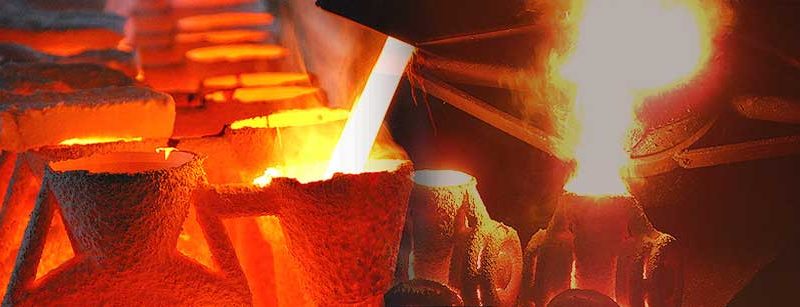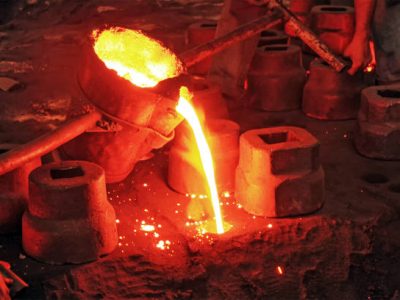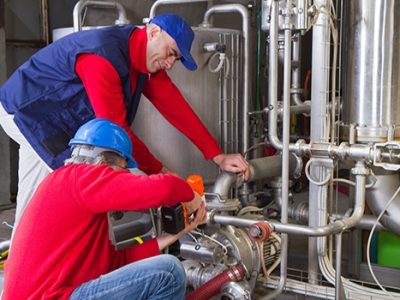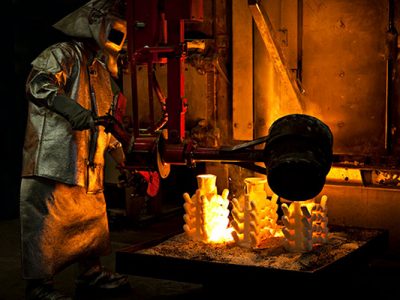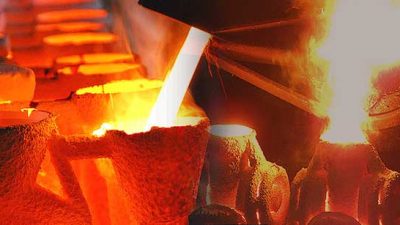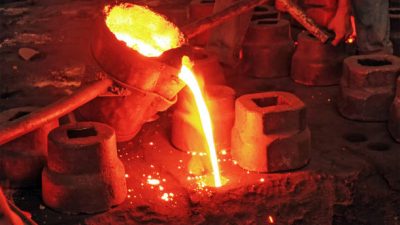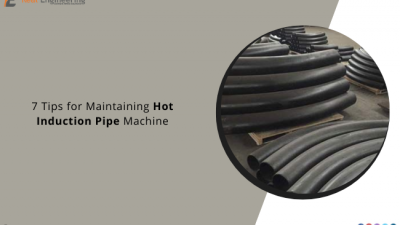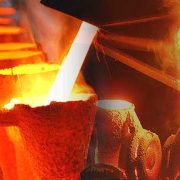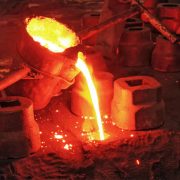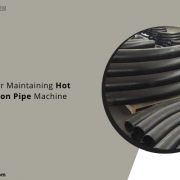In modern metal casting, steel and aluminium are considered the top material of choice. The majority of manufacturers worldwide rely on these metals to produce robust, lightweight and corrosion-resistant metallic products.
There are hundreds of different grades and alloys for aluminium and steel, each of them has specific advantages and disadvantages. Despite this fact, the manufacturers still prefer them because of their excellent properties. It is helpful to compare them to know which one is a better alternative.
Casting materials should be evaluated in terms of various properties. A manufacturer’s choice of product depends on the type of product to be manufactured and what it will need to achieve its purpose. Let’s look into the differences between aluminium casting and steel castingalloys in general;
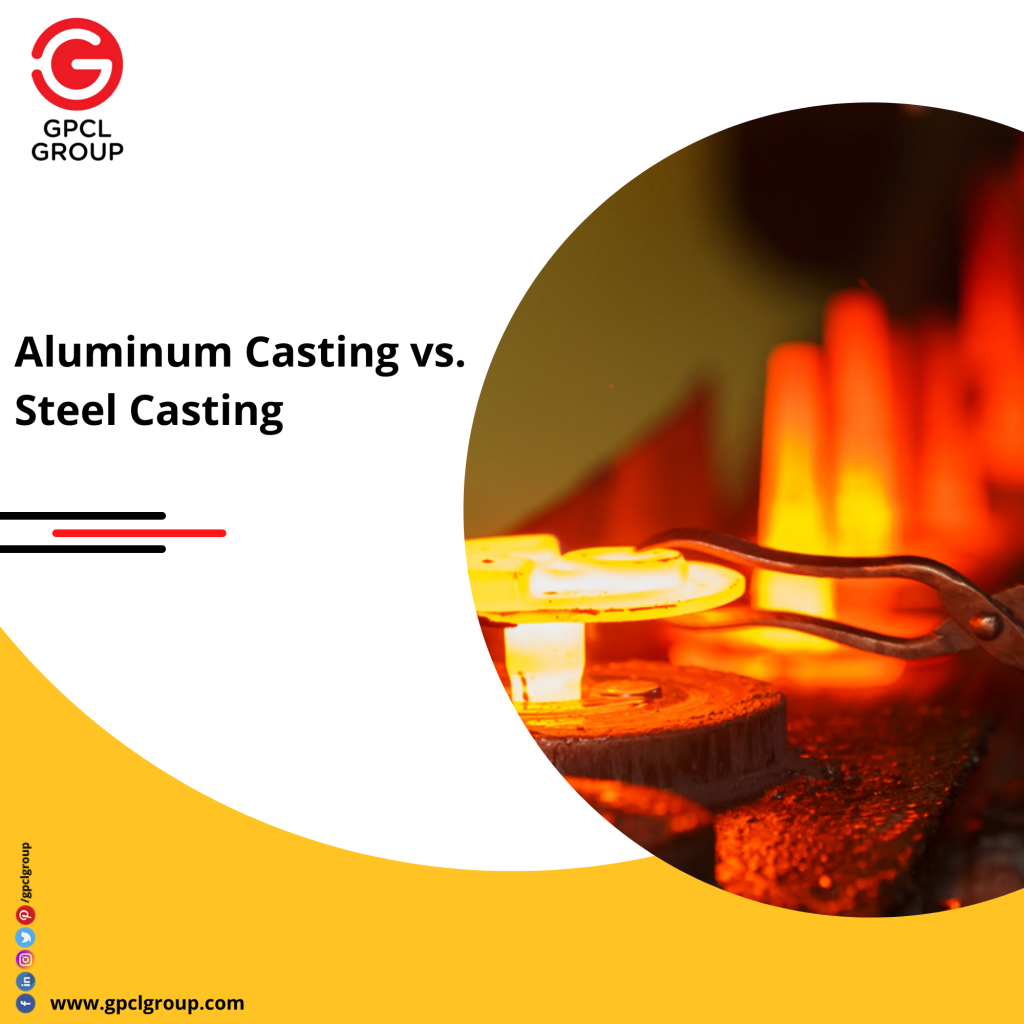
Different Between Aluminium Casting and Steel Casting:
● Aluminium vs steel; In terms of strength
Steel casting is substantial compared to aluminium. However, some aluminium alloys are stronger. Steel is often considered the first choice for weight-bearing structural elements or applications that require strength. Aluminium can provide weight advantages too but should be appropriately engineered to meet strength requirements.
● Aluminium vs steel; In terms of weight
The density of aluminium is 2.5 – 3 times less than steel casting. This low density gives aluminium a notable weight advantage. One can improve the strength and stiffness of aluminium products by increasing the material in vital areas, while steel maintains an overall lightweight.
● Aluminium vs steel: corrosion resistance
In terms of corrosion resistance, the matchup can go either way. Aluminium is highly resistant to corrosion and can withstand long periods outdoors and in wet environments. Carbon steel gets corroded easily and needs to be painted or sealed to function correctly.
On the other hand, stainless steel exhibits superior resistance to corrosion not only in comparison to carbon steel but also in comparison to aluminium. There is a common myth that aluminium doesn’t rust. Indeed, aluminium does not exhibit rust – the red pigment of rust comes from iron in the alloy – but when kept in acidic or basic environments, aluminium corrodes faster than any other alloy.
● Aluminium vs steel; heat resistance
The melting temperature of aluminium is less than steel casting, so aluminium products are not much heat resistant. Steel, on the other hand, has a very high melting point. So it doesn’t melt until it reaches the temperature of about 2500 degrees Fahrenheit. Aluminium starts to soften at 900 degrees F. Steel can be used in high heat applications but not aluminium.
● Aluminium vs steel; machinability
After removing a casting from the old, it has to undergo several processes to prepare it for use. Machinists boreholes, tap threads and remove the casting until the final product is exactly the right shape. Steel is complex as compared to aluminium. Though this feature adds advantages in strength and durability, it becomes a drawback for machining. Steel castingtakes more time to machine and needs expensive tools to cut away material.
● Aluminium vs steel; castability
- If you are generating cast products and wondering if steel or aluminium is a better choice, the answer depends on the casting process you use. The melting temperature of aluminium is less than steel. Hence, it has less heat resistance than steel. Being less heat resistant, aluminium is more stable than steel. Additionally, the fire extinguisher must be routinely maintained to ensure it is ready for use in case of any fire hazards during the casting process.
Aluminium requires less temperature to melt and maintain at casting temperatures, and it can be launched using a variety of methods that do not apply to steel. Die casting, one of the most popular casting methods, uses non-ferrous metals like zinc, magnesium and aluminium. Mostly, moles used for the versatile process of permanent mould casting are made from steel. Aluminium is an excellent choice for mild casting. However, ferrous alloys like steel are too hot in their molten state.
● Aluminium vs steel: functionality
In terms of functionality, aluminium is easier to melt. This tendency to melt makes it more fluid and easy to pour into moods. It is easier to work on aluminium castings as they are less stuff than steel casting. However, steel castings need more effort to work on.
Conclusion
So, as you can see, there is a wide range of factors to be considered before deciding which of these materials is suitable for your product. If you are still unsure how to select, consult an expert who knows about casting and can solve all your doubts on the spot.

